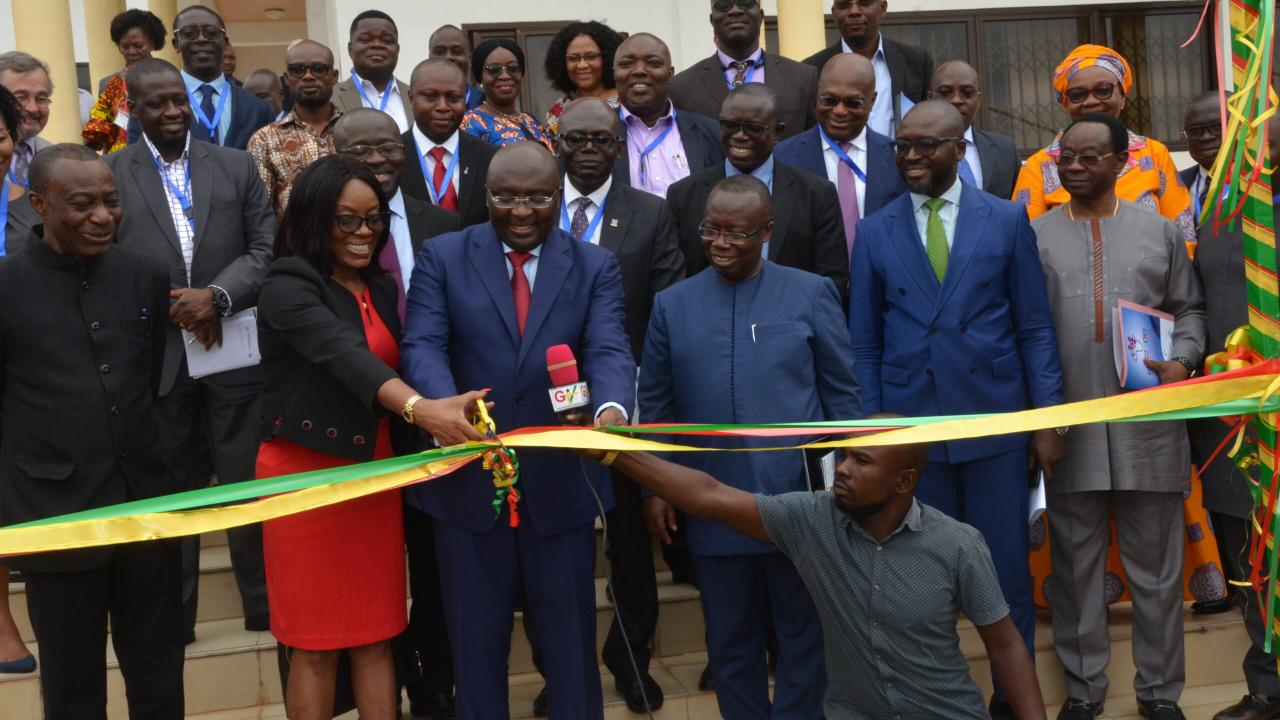
New Research Network Links African Development Economists for Policy Impact
Right now, the vast majority of development research in the global south is led by researchers from the global north. This is particularly true of economics research in Africa. A 2021 study found that only 25 percent of articles on Africa published from 2005-2015 in leading economics journals had at least one African-based author.
In June 2022, the ALL-IN Research Network (ARN) launched its efforts to support locally led, locally relevant development economics research by African researchers and their institutions. The overall goal of ARN is to strengthen the African research community and increase the overall impact of international research investments.
“Giving developing country researchers more opportunity, they may be able to lead and shift policies that inform their own national agenda,” said David Ameyaw, ARN co-director and CEO of the International Center for Evaluation and Development (ICED). “I’m so happy that something that was a dream has eventually come true.”
The Idea for a Network of African Development Economists
The idea for ARN began in 2016 at a research conference in Washington, D.C. At that conference, Ameyaw wondered why the research was being shared in the global north without participation from leaders or politicians from the global south who could use that evidence to make policy decisions.
Ameyaw began a dialogue with colleagues at the Feed the Future Innovation Lab for Markets, Risk & Resilience at UC Davis about how they might empower researchers in host countries to drive research agendas to support policy making in their own countries.
“The thing that’s always missing is the opportunity,” said Michael Carter, director of the MRR Innovation Lab and ARN co-director. “Someone has to actually put the research money there and give these researchers who have been trained, who have ideas, who have connections, the opportunity to really flourish and learn by doing."
First Steps to Advance Local Research Leadership
In 2020, the MRR Innovation Lab and ICED established the Feed the Future Advancing Local Leadership, Innovation and Networks (ALL-IN) initiative with $6 million in support from USAID to fund 12 initial research projects led by African researchers. These 12 projects were selected from 124 proposals submitted from over 40 institutions, indicating a tremendous demand for development research funding.
“We cannot really influence policy in developing countries working with only twelve researchers,” said Ameyaw. “I wanted to know how do we work with those who were not selected in this round of funding.”
The ALL-IN Research Network, an expansion of the work begun with Feed the Future ALL-IN, was established to build and support a broad network of African researchers. The primary goals of ARN are to strengthen participants’ research and proposal-writing skills and to facilitate connections to donors and others in the international development community that fund large-scale research.
“We really want to create a group of people who are working on the things they think are important,” said Carter. “We hope by creating this network off of this foundation that we can have a critical mass of people and we can begin to come up with more funding beyond what we could offer to only twelve people.”
Something New and Novel in Development Research
“We are witnessing something that is novel, something that is new,” said Julius Muia, principal secretary of the Kenya National Treasury, who gave the keynote remarks at the ARN Virtual Launch on June 8, 2022. “I hope this initiative will be able to generate actionable research and reach key players in the international development space.”
At that event, Pierre Jacuqet, president of the Global Development Network (GDN), said that one of the limitations of development research led from outside developing countries is that it results in “disembodied knowledge” that has no connection to the places where the research was conducted. GDN was established by the World Bank in 1999 to overcome this kind of limitation.
“This disconnect between the scientific content of knowledge production and the social and political nature of the use of scientific knowledge is something that has been ignored for many decades,” said Jacquet. “I’m happy to hear that USAID has moved toward localization because it’s crucial for this connection that interests all of us between research and action.”
Taking Local Research Innovations to Scale
Joseph Ssentongo, senior vice president for impact with the Global Innovation Fund (GIF), also took part in the June event. GIF is a nonprofit social innovation fund that partners with governments and aid agencies, including USAID, to bring the venture approach to global development programs.
“Our model is based on scaling innovations with impact and it goes without saying that having ideas that are developed and owned in a local context with a local researchers involved in the production of that knowledge, it’s important, so we are looking to increase how much we engage with local researchers,” said Ssentongo.
ARN has already begun its activities by convening its 130 participating researchers across Africa into peer groups who work in similar areas of research. A critical next step is to secure funding partnerships to support the next round of major projects.
“We’re hoping to enlist support and interest from a number of people in terms of how we can get others to go all-in and really make investments in the kind of talented researchers who are out there right now and are often still looking for opportunities,” said Carter.
